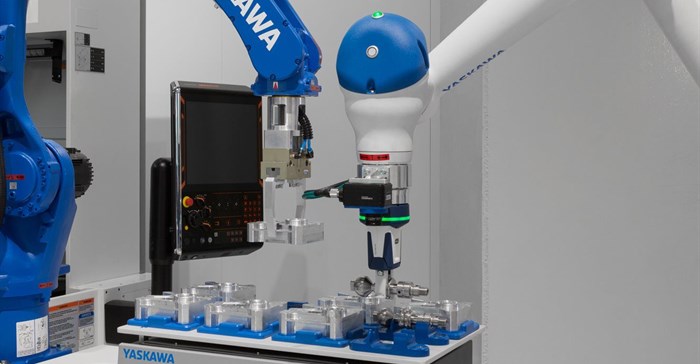The South African manufacturing sector is on the cusp of a revolution driven by the powerful combination of robotics and machine learning (ML). This technology has the potential to significantly boost productivity, efficiency, and competitiveness for local companies that embrace it.

Yaskawa Motoman HC robots
"Machine learning in automation and robotics allows for a significant increase in productivity within manufacturing processes," says Andrew Crackett, managing director at Yaskawa South Africa.
"This will undoubtedly optimise most operations, leading to a higher degree of competitiveness."
A key advantage of integrating ML into robotics is its ability to enhance existing automation capabilities. Traditional robotic systems rely on pre-programmed instructions, limiting their adaptability in dynamic environments.
However, by incorporating ML, these systems can now analyse vast amounts of data, learn from past tasks, and make intelligent decisions autonomously. This translates to increased versatility, improved detection of system flaws, and optimised performance without constant human intervention.
Collaborative effort
The technology also fosters a more collaborative and safer manufacturing environment.
"Collaborative robots, or cobots, like the Motoman HC Series robots, not only enhance productivity but also foster a safer and more collaborative manufacturing environment," explains Crackett.
These cobots leverage advanced algorithms in ML to facilitate intuitive human-robot interaction.
ML drives continuous improvement in manufacturing operations. Through a network of sensors, cameras, and other data sources, ML algorithms can identify patterns, predict system failures, and optimise maintenance schedules.
"This predictive maintenance approach can significantly reduce downtime and maintenance costs, while also prolonging the lifespan of machinery," says Crackett.
Additionally, ML enables adaptive manufacturing, where production processes can be adjusted in real-time based on changing market demands. This agility strengthens a company's position in the fast-paced global market.
Addressing challenges
However, unlocking the full potential of this transformative technology requires addressing some challenges.
"Data quality, security concerns, and ethical considerations are amongst the more critical issues that need to be addressed to ensure the responsible use of ML-optimised robotic systems," notes Crackett.
With its immense potential to revolutionise the manufacturing landscape, ML-powered robotics presents a significant opportunity for South African companies to drive innovation, growth, and enhanced global competitiveness.






























